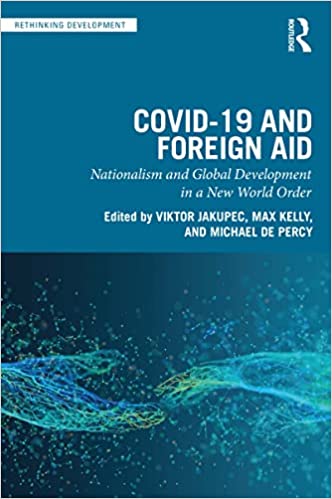
English | 2023 | ISBN: 1032227141 | 361 pages | True PDF EPUB | 9.1 MB
eBook features
Highlight, take notes, and search in the book
In this edition, page numbers are just like the physical edition
Length: 360 pages
Word Wise: Enabled
Enhanced Typesetting: Enabled
Page Flip: Enabled
Read with the free Kindle apps (available on iOS, Android, PC & Mac), Kindle E-readers and on Fire Tablet devices. See all supported devices
Sold by: Amazon.com Services LLC
includes VAT
Digital List Price: $31.67 Save $7.51 (24%)
Pre-order with 1-Click®
This title will be auto-delivered to your Kindle on November 24, 2022.
Deliver to your Kindle Library
Enter a promotion code or Gift Card
This book provides a timely, critical, and thought-provoking analysis of the implications of the disruption of COVID-19 to the foreign aid and development system, and the extent to which the system is retaining a level of relevance, legitimacy, or coherence.
Drawing on the expertise of key scholars from around the world in the fields of international development, political science, socioeconomics, history, and international relations, the book explores the impact of the COVID-19 pandemic on development aid within an environment of shifting national and regional priorities and interactions. The response is specifically focused on the interrelated themes of political analysis and soft power, the legitimation crisis, poverty, inequality, foreign aid, and the disruption and re-making of the world order. The book argues that complex and multidirectional linkages between politics, economics, society, and the environment are driving changes in the extant development aid system. COVID-19 and Foreign Aid provides a range of critical reflections to shifts in the world order, the rise of nationalism, the strange non-death of neoliberalism, shifts in globalisation, and the evolving impact of COVID as a cross-cutting crisis in the development aid system.
This book will be of interest to researchers and students in the field of health and development studies, decision-makers at government level as well as to those working in or consulting to international aid institutions, regional and bilateral aid agencies, and non-governmental organisations.



